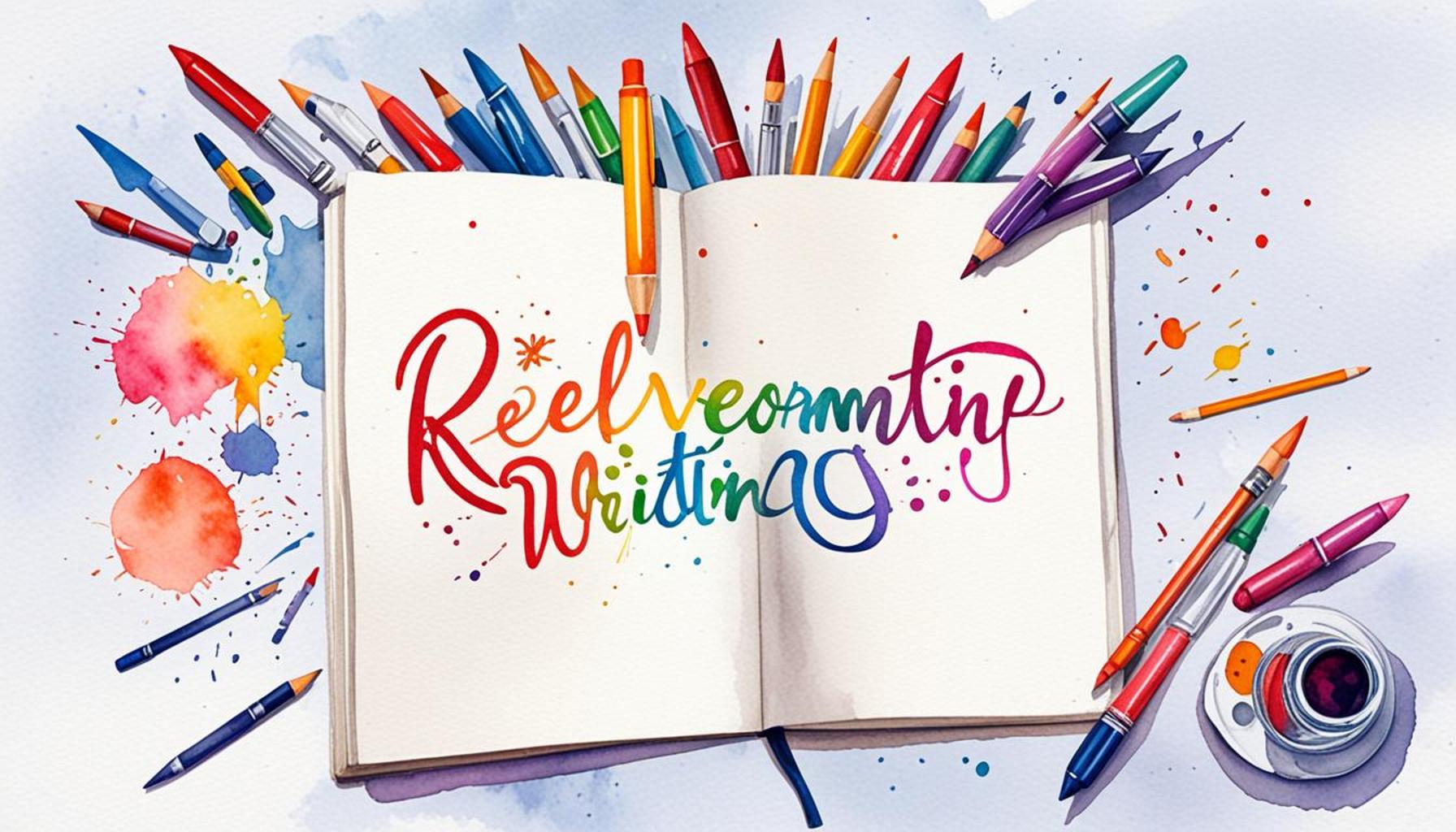Reflective Journal: An Approach to Identify and Overcome Personal Limitations

The Importance of Personal Growth
Many individuals face challenges that hinder their growth and development. Whether it’s in personal relationships or career aspirations, recognizing and addressing these personal limitations is crucial to moving forward in one’s life. For example, a young professional in Lagos might feel held back from pursuing a promotion due to self-doubt or poor communication skills. Identifying these barriers is the first step toward personal development and success. A reflective journal serves as a powerful tool to uncover these barriers and pave the way for self-improvement by encouraging individuals to document their thoughts and experiences regularly.
Why Reflective Journals Matter
Reflective journaling stimulates introspection through consistent documentation. This practice offers various benefits, which include:
- Increased self-awareness: Engaging in reflective journaling enables individuals to understand their motivations and fears better. For instance, someone might realize that their fear of public speaking is rooted in childhood experiences, which they had never acknowledged before.
- Clarification of thoughts: Writing helps organize emotions and ideas, providing a clearer perspective on situations. This clarity can be particularly beneficial for students in Nigerian universities who may struggle with the pressures of exams and social life.
- Goal setting: A reflective journal empowers individuals to pinpoint areas for improvement and track their progress. For example, an entrepreneur in Nigeria can document their daily business challenges and the steps taken to overcome them, which can aid in future decision-making and resilience.
What to Expect
As you engage in reflective journaling, you can anticipate profound insights that lead to significant change. Some potential discoveries include:
- Patterns of behavior: Through consistent entries, you might recognize recurring themes in your life that hold you back, such as feeling overwhelmed during social gatherings or procrastinating on important tasks.
- Strategies for action: Writing can help you develop concrete steps to confront your limitations. For example, if you find that you often procrastinate, you could create a daily schedule to enhance your productivity.
- Emotional release: Journaling provides a safe space to express feelings that might otherwise go unvoiced, serving as an emotional outlet. This practice can be especially significant in cultures that encourage stoicism, like in many Nigerian communities where expressing emotions openly is often frowned upon.
Reflective journaling in Nigeria can resonate deeply within communities that cherish storytelling and cultural reflections. By unlocking personal barriers, individuals can engage in a supportive and engaging environment that fosters understanding and growth. This practice does not only facilitate self-understanding but also builds connections within the community, as shared experiences can lead to collective healing and progress.
ADDITIONAL INSIGHTS: Expand your understanding here
Unpacking Personal Limitations through Reflection
The journey of personal growth often begins with understanding one’s limitations. Individuals frequently find themselves caught in a cycle of self-doubt, fear of failure, or limited self-confidence, all of which can serve as formidable barriers to success. The use of a reflective journal offers a structured approach to identifying these constraints. By recording experiences and feelings, individuals can gain insights that might otherwise remain buried beneath daily routines or overwhelming pressures. In a fast-paced environment like Nigeria, where the urge to conform often stifles individual expression, reflective journaling becomes an invaluable companion on the path to self-discovery and empowerment.
Exploring Deep-seated Beliefs
Reflective journaling allows individuals to confront and explore deep-seated beliefs that may influence their behavior. These beliefs often stem from cultural norms, societal expectations, or personal experiences that shape one’s outlook on life. For instance, young women in Nigeria may grapple with societal pressures that dictate their roles and capabilities, leading to self-imposed limitations on their ambitions. Writing in a journal empowers them to challenge these preconceived notions, fostering a sense of agency that encourages them to pursue their dreams boldly.
The Role of Introspection
Introspection is a powerful tool for personal development. A reflective journal encourages individuals to ask probing questions about their strengths and weaknesses. This inquiry can yield a wealth of information, including:
- Self-Assessment: Regular entries help assess emotional and psychological states, revealing areas that require attention. For example, you might discover that avoiding conflict is a barrier in both personal and professional relationships.
- Understanding Triggers: By examining past experiences and emotional responses, one can identify triggers that provoke negative feelings or behaviors, providing a pathway to developing coping strategies.
- Enhanced Decision-Making: Analyzing past decisions through journaling offers lessons on what worked and what did not, equipping individuals with the foresight to make better choices moving forward.
As the practice of reflective journaling evolves, so does the potential for transformation. Individuals in Nigeria, facing unique cultural dynamics and challenges, can leverage these insights to foster resilience and adaptability. By taking the time to document their thoughts, individuals can create a comprehensive picture of their experiences, allowing them to navigate life’s complexities with confidence and purpose.
A Path to Overcoming Limitations
The ultimate goal of reflective journaling is to not only identify personal limitations but to devise actionable strategies to overcome them. This transformative process can lead individuals to recognize that limitations are often self-imposed, influenced by fear rather than reality. Progressing through this journey, individuals gain the courage to step out of their comfort zones, leading to personal breakthroughs and growth.
| Advantage | Description |
|---|---|
| Enhanced Self-Awareness | Using a reflective journal allows individuals to track their thoughts, emotions, and behaviors, leading to a deeper understanding of personal triggers and limitations. |
| Goal Setting | It empowers users to identify specific personal goals and milestones, fostering a proactive approach to overcoming obstacles. |
| Emotional Regulation | The practice of journaling helps individuals manage their emotional responses, promoting mental clarity and reducing stress in challenging situations. |
| Continuous Learning | Regular reflection encourages a mindset of lifelong learning, motivating individuals to seek new perspectives and solutions to personal challenges. |
Reflective journaling serves not only as a tool for expressing thoughts but also as a structured approach to address personal limitations. As individuals engage with their entries over time, they can witness their growth, enabling them to overcome previously unrecognized barriers that impede personal development. Moreover, the practice cultivates resilience by reinforcing the idea that setbacks are part of the journey, offering essential lessons that contribute to future success.
YOU MAY ALSO LIKE: Read read another article
A Transformative Journey of Self-Discovery
The path towards overcoming personal limitations often requires more than mere acknowledgment of one’s constraints; it necessitates a proactive stance in seeking solutions and developing resilience. Reflective journaling cultivates an environment for this transformation by allowing individuals to document their evolution, enabling them to track personal growth over time. In Nigeria, where communal living and shared experiences often overshadow individual ambitions, a reflective journal empowers one to reclaim their narrative and advocate for personal aspirations.
Integrating Feedback and External Perspectives
One of the significant advantages of reflective journaling is the ability to incorporate feedback and perspectives from others. This external input can challenge entrenched views and highlight blind spots that one might overlook. For instance, in collaborative settings such as a Nigerian workplace, obtaining feedback from colleagues establishes a culture of continuous learning. When individuals reflect on this input within their journals, they can chart a course that genuinely aligns with their strengths and weaknesses.
Moreover, engaging in group reflective exercises—such as peer journaling sessions—can further enrich this process. By sharing and discussing journal entries, participants can offer constructive insights and encouragement while learning from the experiences of their peers. This collaborative approach can greatly enhance one’s understanding of personal limitations and inspire innovative solutions to overcome them.
Setting Realistic Goals and Milestones
To effectively tackle personal limitations, setting realistic and achievable goals is paramount. Reflective journaling can facilitate this by allowing individuals to break down overwhelming aspirations into manageable milestones. By establishing specific, measurable objectives, individuals are less likely to become discouraged by perceived failures. Instead, they can celebrate small victories documented in their journals, creating a sense of momentum.
- SMART Goals: Applying the SMART criteria—Specific, Measurable, Achievable, Relevant, Time-bound—can lead to well-defined action plans. For instance, aspiring entrepreneurs in Nigeria can set monthly targets for business development, which can be outlined in their reflective journals.
- Accountability: Regularly reviewing one’s goals and progress in a journal promotes a sense of accountability. Knowing that there is a record of aspirations encourages individuals to stay committed to their growth journey.
Coping Mechanisms through Reflective Practice
Identifying personal limitations also includes developing effective coping mechanisms to deal with setbacks. Reflective journaling naturally lends itself to the discovery of such strategies. Individuals can record instances where they encountered challenges and evaluate how they responded. With each entry, patterns may emerge that highlight effective coping tactics or reveal maladaptive behaviors. Recognizing these patterns is essential for developing resilience, particularly in a rapidly changing environment like Nigeria where adaptability is crucial.
For example, students experiencing academic pressure may find that using mindfulness techniques or engaging in physical activities such as traditional Nigerian dances help alleviate stress. Documenting these coping strategies in a reflective journal reinforces their effectiveness, providing a personalized toolkit for future challenges.
By leveraging the insights gained through reflective journaling, individuals not only identify limitations but actively work towards dissolving them. They begin to see themselves not as victims of circumstance but as agents of change, empowered to shape their own destinies.
LEARN MORE: This related article may interest you
Conclusion: Embracing the Journey of Growth
In a world filled with distractions and societal expectations, reflective journaling stands out as a powerful tool for self-exploration and personal development. By engaging in this practice, individuals in Nigeria and beyond can uncover and confront their personal limitations, allowing for a deeper understanding of their unique strengths and weaknesses. As we have explored, the process begins with honest self-assessment, progresses through the integration of external feedback, and culminates in the establishment of realistic goals. This multifaceted approach not only promotes accountability but also enhances individual resilience in the face of challenges.
Ultimately, reflective journaling fosters an environment where self-discovery and self-advocacy thrive. By documenting experiences, thoughts, and emotions, individuals empower themselves to take control of their narratives, shifting from a passive response to their circumstances to an active role in shaping their destinies. The journey may not always be smooth, but recognizing setbacks as part of the growth process is vital. This awareness, coupled with the coping strategies identified through reflective practice, equips individuals with a personalized toolkit to navigate life’s complexities.
As you ponder the transformative potential of a reflective journal, consider starting your own journey today. By committing to this practice, you not only enhance your capacity to identify and overcome personal limitations but also cultivate a lifelong habit of introspection and growth. Embrace the journey, learn from your reflections, and watch as new opportunities unfold before you.


